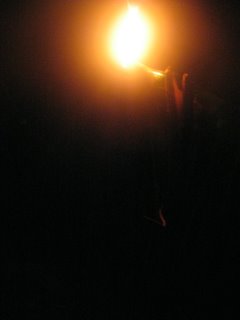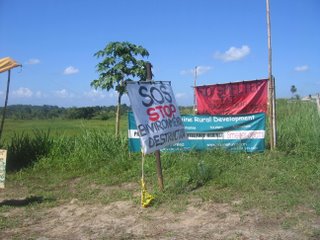Regarding the Basel Convention
http://www.basel.int/
Date of Accession 18.02.94 (a)
Permanent Secretary
Ministry of Public Utilities and the Environment
Sacred Heart Building
16-18 Sackville Street
Port of Spain
Trinidad and Tobago
Telephone: 625 60 83
Telefax: 625 70 03
environment@tstt.net.tt
Dr. Ronnie Sookhoo
Director
Basel Convention Caribbean Regional Centre
c/o CARIRI Compound
Trincity West Industrial Estate
Macoya, Tunapuna
Trinidad and Tobago
Teléfono: 662 7171, 662 2855
Tele-fax: 645 6734
E-mail: basel_ca@tstt.net.tt
Summary
A global agreement, ratified by several member countries and the European Union for addressing the problems and challenges posed by hazardous waste.
The key objectives of the Basel Convention are to minimize the generation of hazardous wastes in terms of quantity and hazardousness;to dispose of them as close to the source of generation as possible;and to reduce the movement of hazardous wastes.
Relevance to Smelter Issue
General Obligations
2. Each Party shall take the appropriate measures to:
(a) Ensure that the generation of hazardous wastes and other wastes within it is reduced to a minimum, taking into account social, technological and economic aspects;
(b) Ensure the availability of adequate disposal facilities, for the environmentally sound management of hazardous wastes and other wastes, that shall be located, to the extent possible, within it, whatever the place of their disposal;
(c) Ensure that persons involved in the management of hazardous wastes or other wastes within it take such steps as are necessary to prevent pollution due to hazardous wastes and other wastes arising from such management and, if such pollution occurs, to minimize the consequences thereof for human health and the environment;
(d) Ensure that the transboundary movement of hazardous wastes and other wastes is reduced to the minimum consistent with the environmentally sound and efficient management of such wastes, and is conducted in a manner which will protect human health and the environment against the adverse effects which may result from such movement;
(e) Not allow the export of hazardous wastes or other wastes to a State or group of States belonging to an economic and/or political integration organization that are Parties, particularly developing countries, which have prohibited by their legislation all imports, or if it has reason to believe that the wastes in question will not be managed in an environmentally sound manner, according to criteria to be decided on by the Parties at their first meeting;
(f) Require that information about a proposed transboundary movement of hazardous wastes and other wastes be provided to the States concerned, according to Annex V A, to state clearly the effects of the proposed movement on human health and the environment;
(g) Prevent the import of hazardous wastes and other wastes if it has reason to believe that the wastes in question will not be managed in an environmentally sound manner;
(h) Co-operate in activities with other Parties and interested organizations, directly and through the Secretariat, including the dissemination of information on the transboundary movement of hazardous wastes and other wastes, in order to improve the environmentally sound management of such wastes and to achieve the prevention of illegal traffic.
Caricom Member Countries
All CARICOM member states have signed the Basel convention except for Grenada and Suriname. Haiti is the only one of these which has not ratified the convention.


